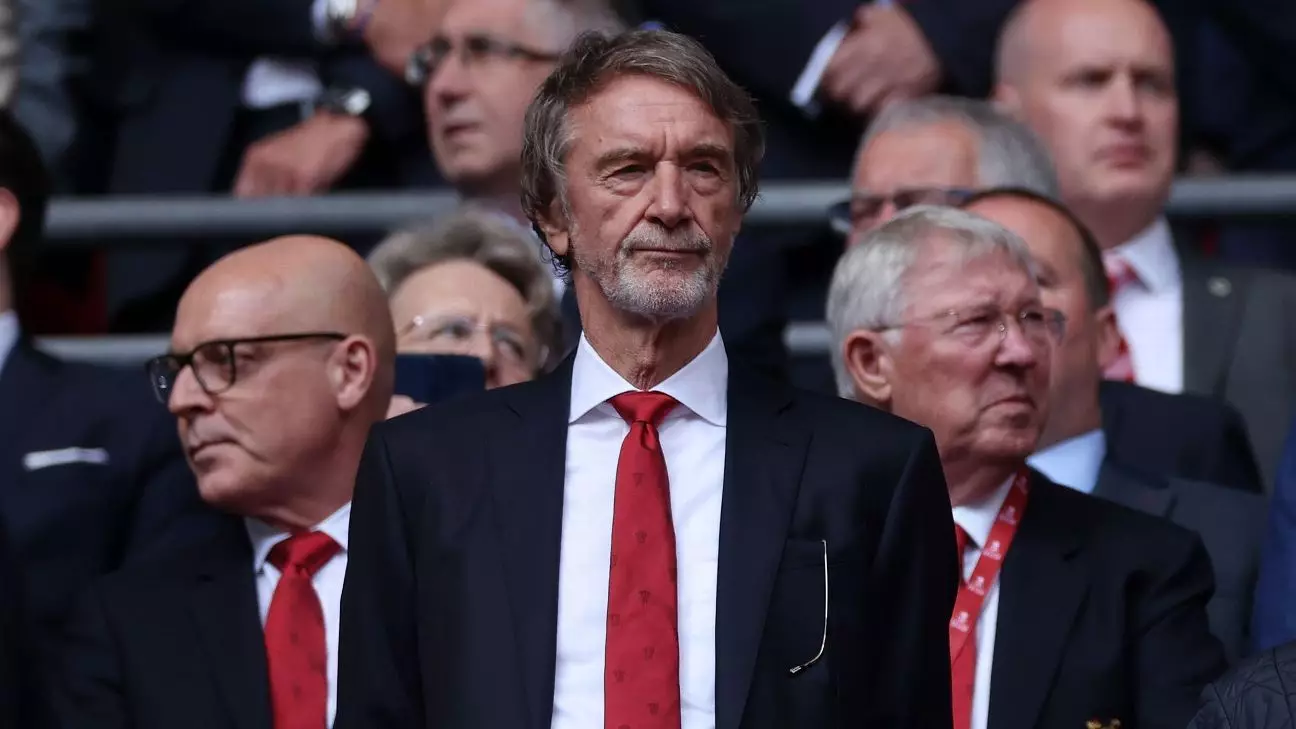Sir Jim Ratcliffe, the billionaire businessman who recently acquired a 27.7% stake in Manchester United, has made it clear that returning the club to its former glory won’t be straightforward. His proclamation about needing to make “difficult and unpopular decisions” underscores the seriousness of the task at hand. Over the years, Manchester United has slipped into mediocrity, and Ratcliffe’s recent insights highlight a pressing need for profound changes in the club’s structure and strategy. With a vision that aims to break the dominance of rivals like Manchester City and Liverpool, Ratcliffe understands that the path forward is littered with obstacles.
The past year has been particularly tumultuous for Manchester United. Following Erik ten Hag’s dismissal, fans were left pondering the club’s future as it teetered on the brink of an unprecedented low in the Premier League standings. The team’s struggles were evident, with performances on the pitch failing to inspire optimism among supporters. The appointment of new manager Ruben Amorim has brought about a slight resurgence, yet Manchester United still finds itself languishing in the bottom half of the table—a far cry from its storied history.
In a recent conversation with the club’s fanzine, United We Stand, Ratcliffe’s candid remarks about the current state of United were nothing short of alarming. Describing the club’s condition as “mediocre,” he reiterated the need to address the underlying issues that have plagued the team. His assertion that “nothing much is going to change” without tough choices reflects a sobering reality that deviates sharply from the club’s illustrious past. Ratcliffe’s unvarnished honesty could be a wake-up call for not only the management but also the fans who yearn for a return to greatness.
In line with Ratcliffe’s vision for revitalization, Manchester United has begun to implement a series of cost-cutting measures. The club’s decision to make nearly 25% of its workforce redundant this past summer is indicative of a broader strategy aimed at reallocating resources toward enhancing on-field performance. Such measures, although painful, are seen as necessary sacrifices in a bid to steer the club back on course. The decision to end Sir Alex Ferguson’s long-held ambassadorial role, a position that embodied history and nostalgia, signifies a shift towards a more modern approach—a playing field where past glory must make way for forward-thinking strategies.
Looking ahead, the challenges facing Manchester United and Ratcliffe’s administration are daunting. With the Premier League becoming more competitive and the financial stakes rising, any missteps could further entrench the club in mediocrity. However, by embracing change and making prudent decisions, there is hope that United can carve a new path to retrieve its elite status. Ratcliffe’s resolve and understanding of the need for significant change may very well be the catalyst that pulls Manchester United out of its current malaise. Yet, the journey to reclaim the club’s lost prestige will require not just leadership but also collective support from every corner of the Manchester United community.

Leave a Reply